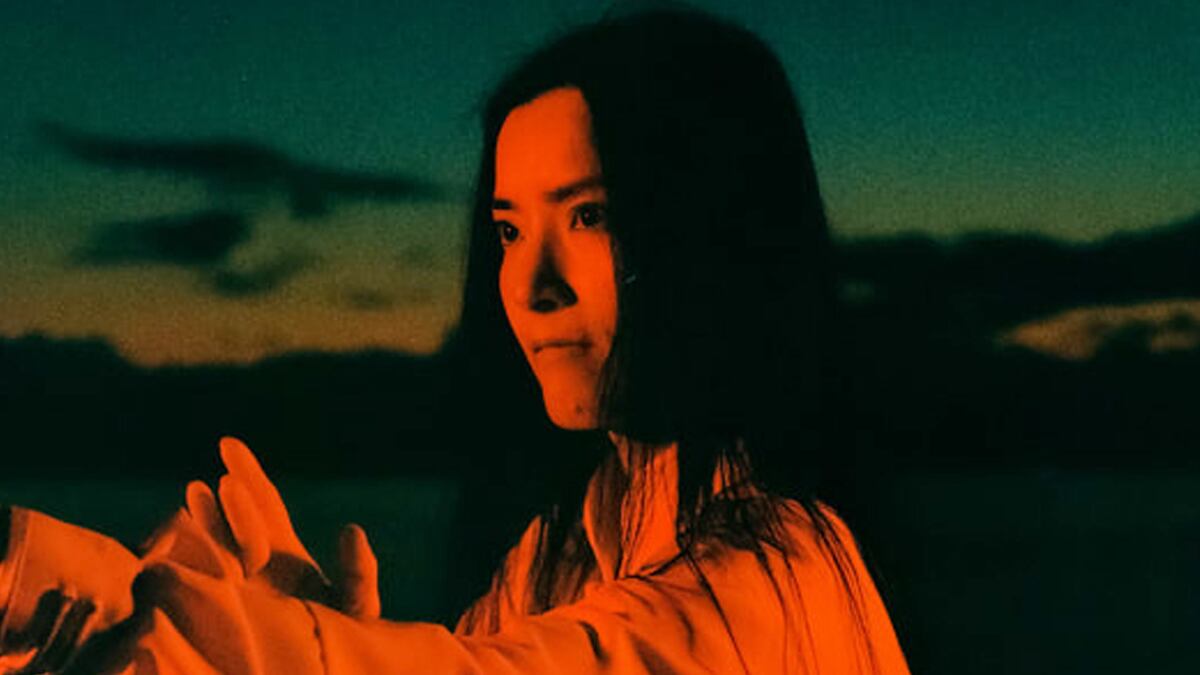There is a moment in Rebby Yuer Foster’s short film Jia Ren: A Self Portrait when their mother, Xiaofeng Foster, uses tai chi to create a metaphor that captures one of the most important ideas in the film.
“[Tai chi] might appear to be round and soft, but really it has that inner force in it,” Foster says. “And I think that really signifies Chinese culture—that maybe we appear to be complacent and low-key and calm and more gentle and all that, but I think that inside we’re pretty strong.”
Jia Ren, presented by Shaking the Tree Theatre, is a testament to that strength. By fusing frank interviews with richly textured images captured by cinematographer Bridge Donnelly, the film takes us on a singular journey through the experience of being Chinese in America.
“Every little thing in my life that has either forced me to tap more into my white side or has been a moment of realization about my Chinese side—all of these events have led up to this film,” says Foster, whose father is white. “I did want to feature people who I think are very cool and who are Asian and who are empowered and embracing their own Chinese-ness or Asian-ness.”
The story of Jia Ren begins with Our Lady of Lunar Reflection, a film Foster made for Refuge, an installation at Shaking the Tree that centered on 11 goddesses who delivered wisdom and warnings to a pandemic-ravaged world.
“Mine was a four-minute film where I interviewed my friends on what makes them feel grounded and centered and empowered,” Foster says. “And then I expanded on that idea, but I wanted it to be more focused on my own empowerment, and therefore that led to me wanting to interview only Chinese people, interview my mom, and have somebody interview me.”
While Foster prepared a series of questions for the interviewees—including whether they felt they or their parents played into the racist myth that Asians are the “model minority”—they wanted the interviews to include more than words.
“I know before I shot the film, I was like, ‘I want to shoot people who are doing things that are movement-based or moving in a way that feels liberating and empowering to them,’” Foster says. “And then each person chose their own thing. Lisa shaved their head, Tim was spray painting a skateboard, and my mom wanted to do tai chi.”
Directing Jia Ren gave Foster a chance to meditate on the sensation of feeling like an outsider in both China and America—something they say was particularly acute during a trip they took to China around 2017.
“I think being there alone and only partially speaking the language and being looked at by everybody there, either in an oversexualized or very alienating way, was so wild,” Foster says. “I was like, ‘Damn, I feel so comfortable here, but nobody will acknowledge that.’”
For Jia Ren, Foster’s mother discussed similar feelings of displacement. “She said she does think that she plays into the model-minority myth and that she doesn’t feel as strong in America as she did in China,” Foster says. “And she was bringing up all of these things she would do that I guess were kind of rebellious, like not wearing her uniform to school.”
One of the most wrenching scenes features Foster’s mother crying while talking about her struggle to emotionally connect with other people in America. “I think that’s partially why I haven’t shown my mom this film yet—it feels very vulnerable for me and for her,” Foster says. “There were other people who cried during their interviews, but I purposely only chose to put in my mom—and, I guess, me at the end—crying.”
At times, Jia Ren feels like a requiem for the lives lost to anti-Asian hate crimes during the pandemic. Yet it is also a cinematic love letter from Foster to their mother and everyone else who was involved in the project.
“I think that in most Western media I see, East Asian people are represented by two stereotypes—the very uncool Asian person and the Asian person who is cool, but not because they are embracing their own Asian culture,” Foster says. “We as Asian people are cool and empowered in our own identities. We don’t have to cater ourselves to the white gaze or whatever mainstream culture is telling us to be like.”
SEE IT: Jia Ren: A Self Portrait streams at shaking-the-tree.com/23478-20154-jia-ren. Donations encouraged.
